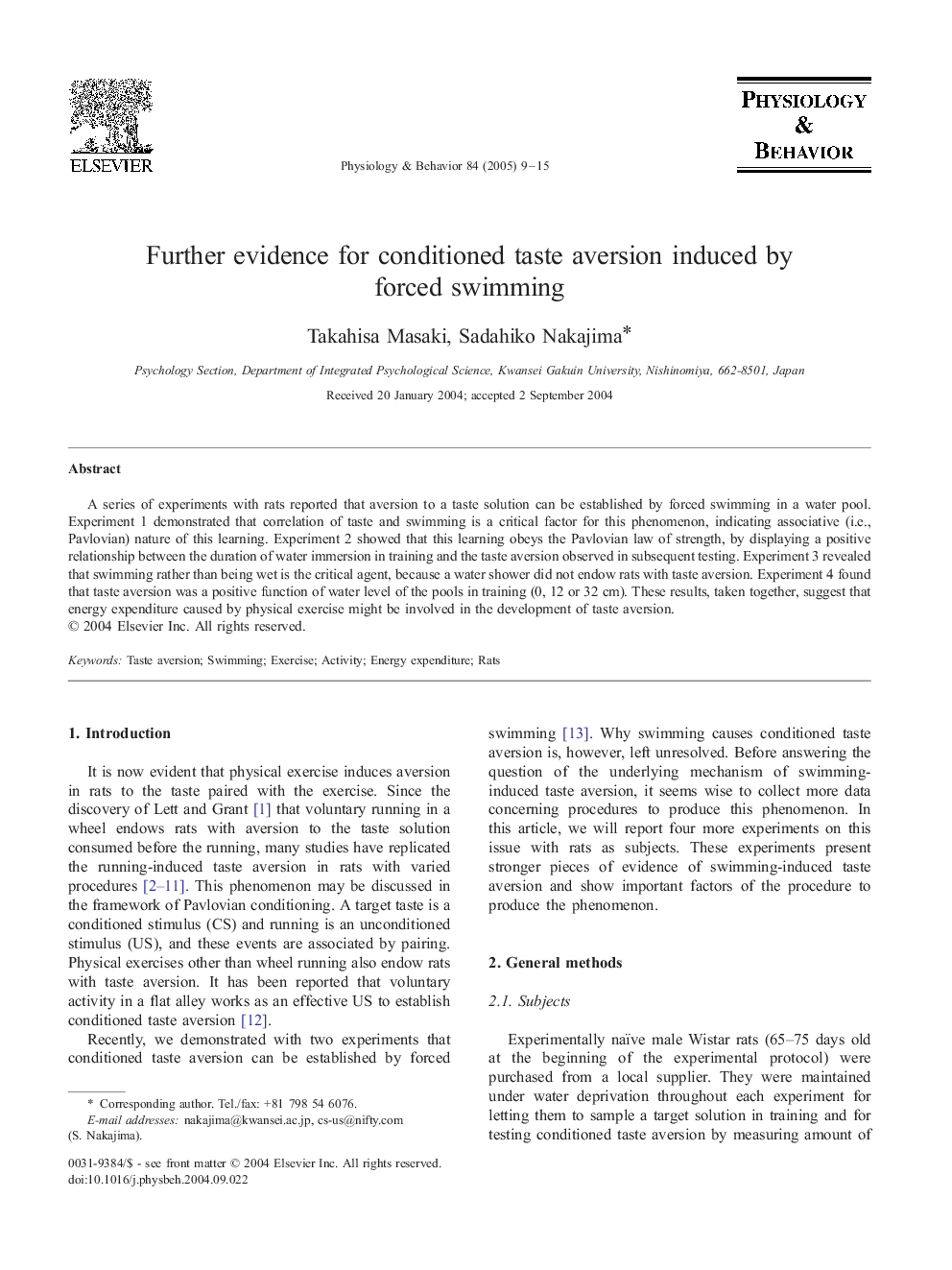| Article ID | Journal | Published Year | Pages | File Type |
|---|---|---|---|---|
| 9149846 | Physiology & Behavior | 2005 | 7 Pages |
Abstract
A series of experiments with rats reported that aversion to a taste solution can be established by forced swimming in a water pool. Experiment 1 demonstrated that correlation of taste and swimming is a critical factor for this phenomenon, indicating associative (i.e., Pavlovian) nature of this learning. Experiment 2 showed that this learning obeys the Pavlovian law of strength, by displaying a positive relationship between the duration of water immersion in training and the taste aversion observed in subsequent testing. Experiment 3 revealed that swimming rather than being wet is the critical agent, because a water shower did not endow rats with taste aversion. Experiment 4 found that taste aversion was a positive function of water level of the pools in training (0, 12 or 32 cm). These results, taken together, suggest that energy expenditure caused by physical exercise might be involved in the development of taste aversion.
Related Topics
Life Sciences
Biochemistry, Genetics and Molecular Biology
Physiology
Authors
Takahisa Masaki, Sadahiko Nakajima,
